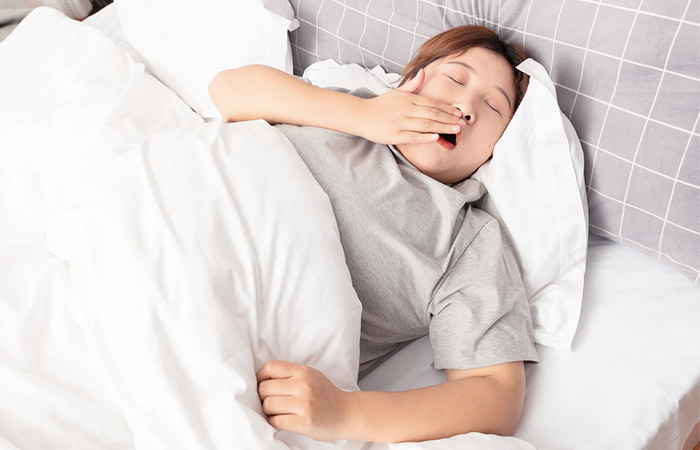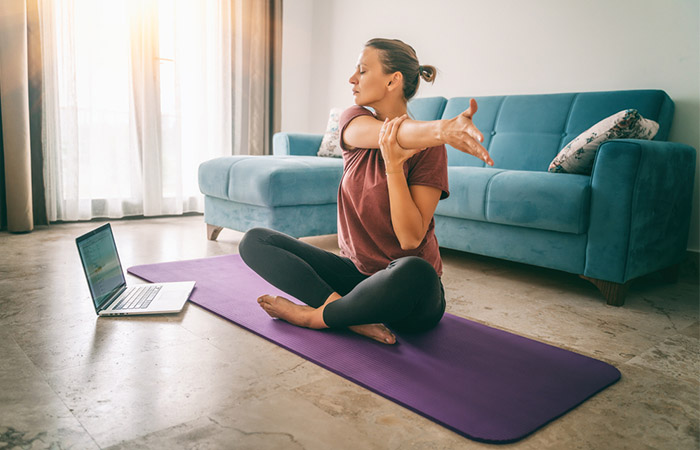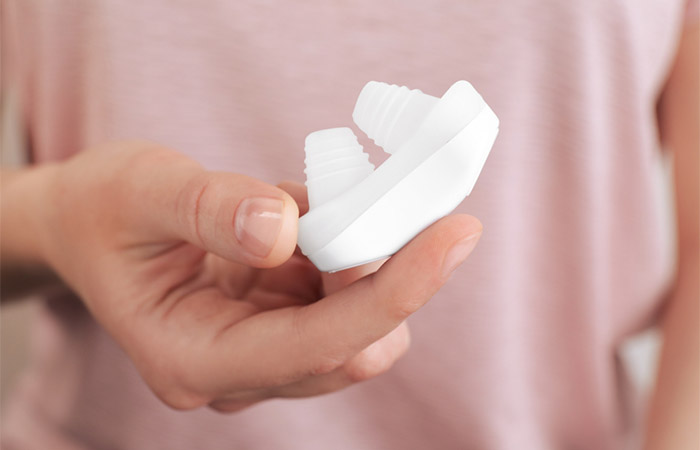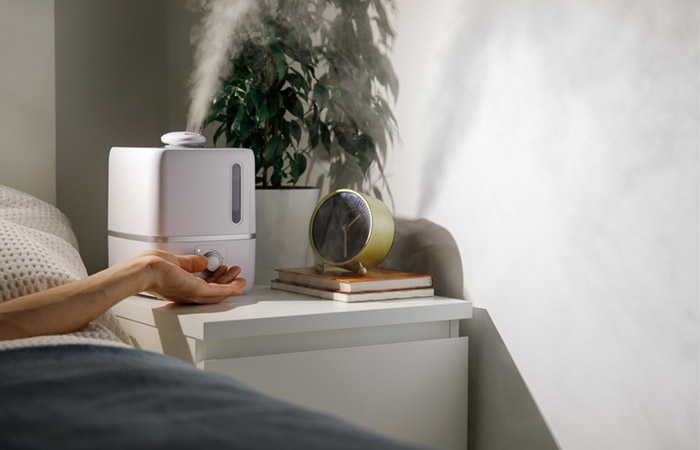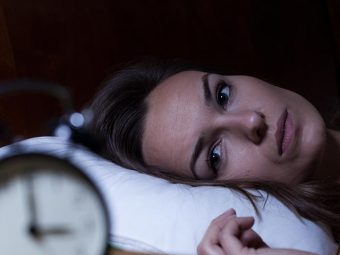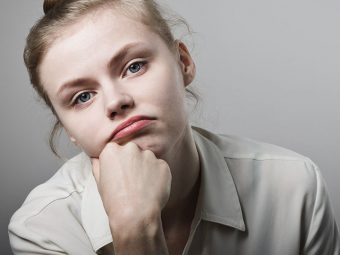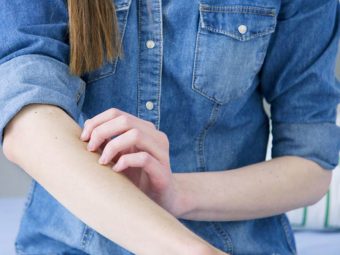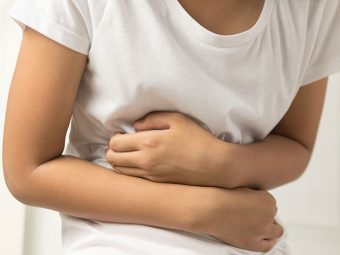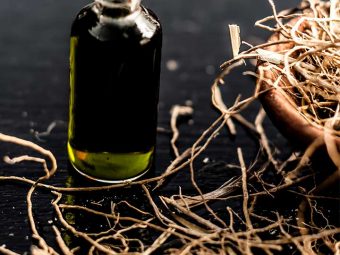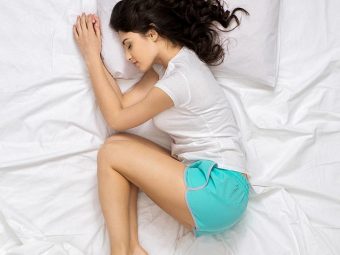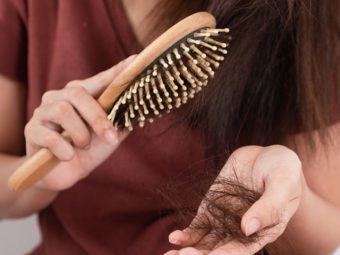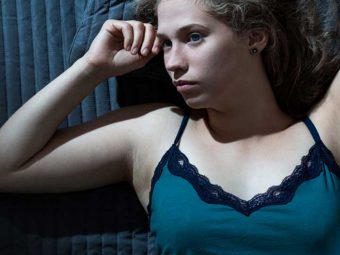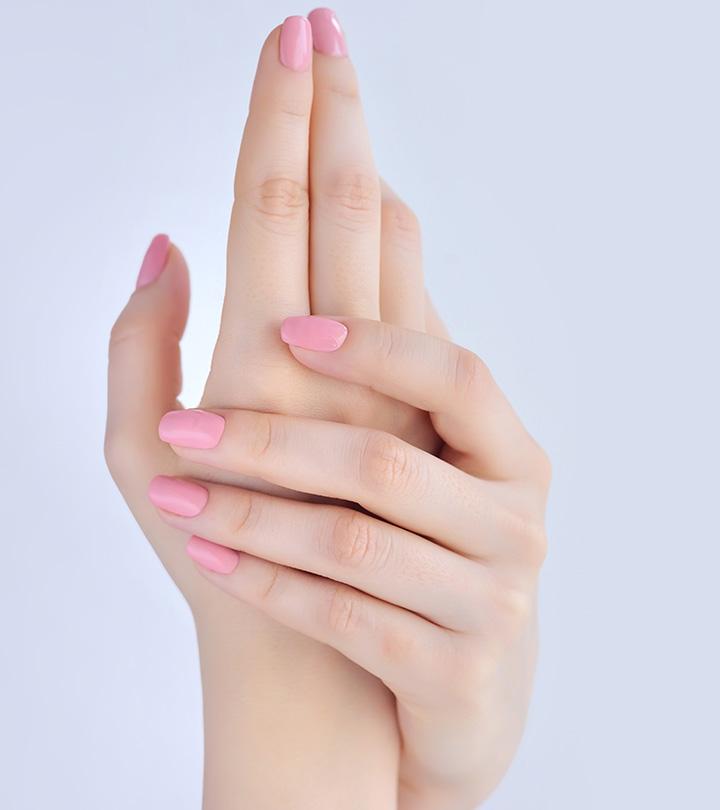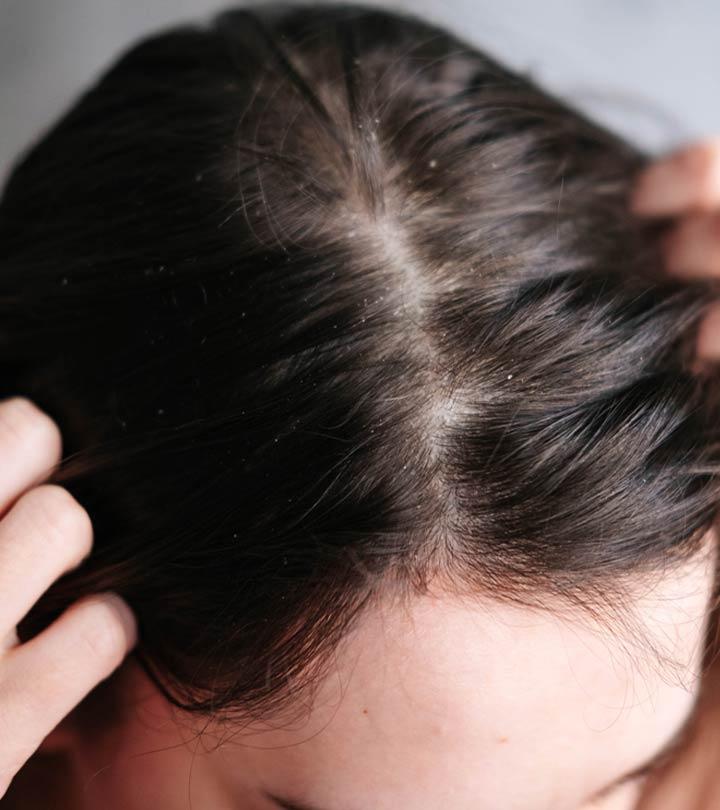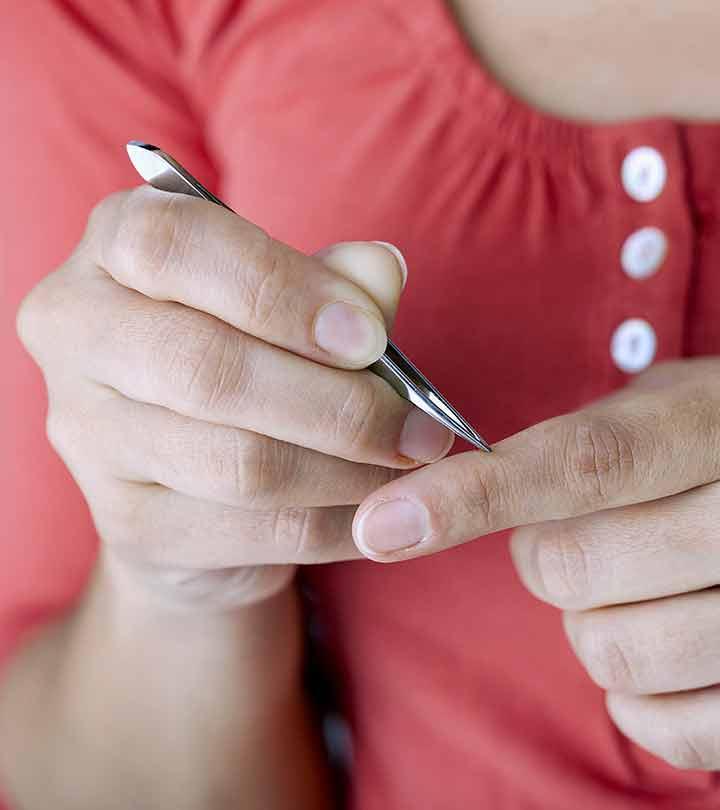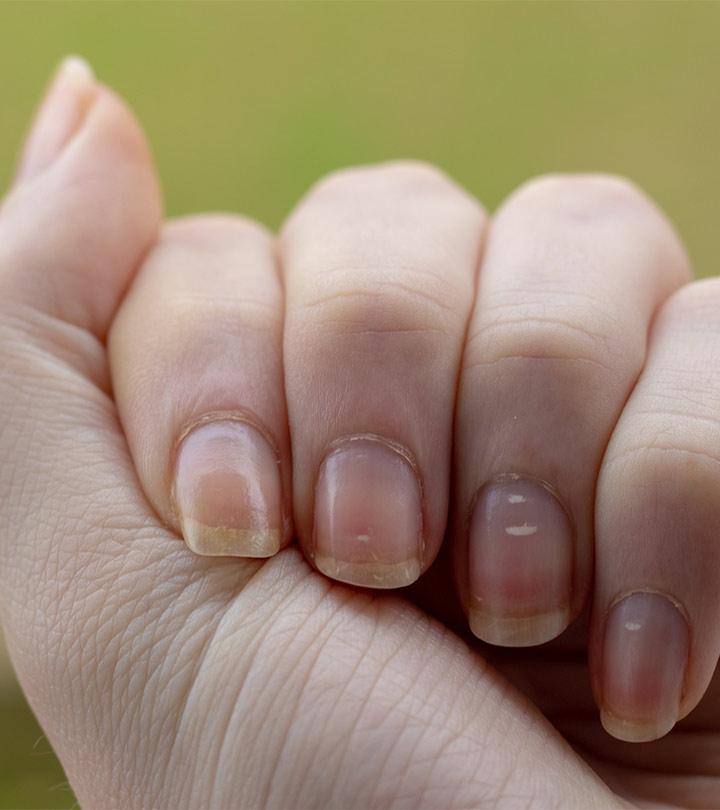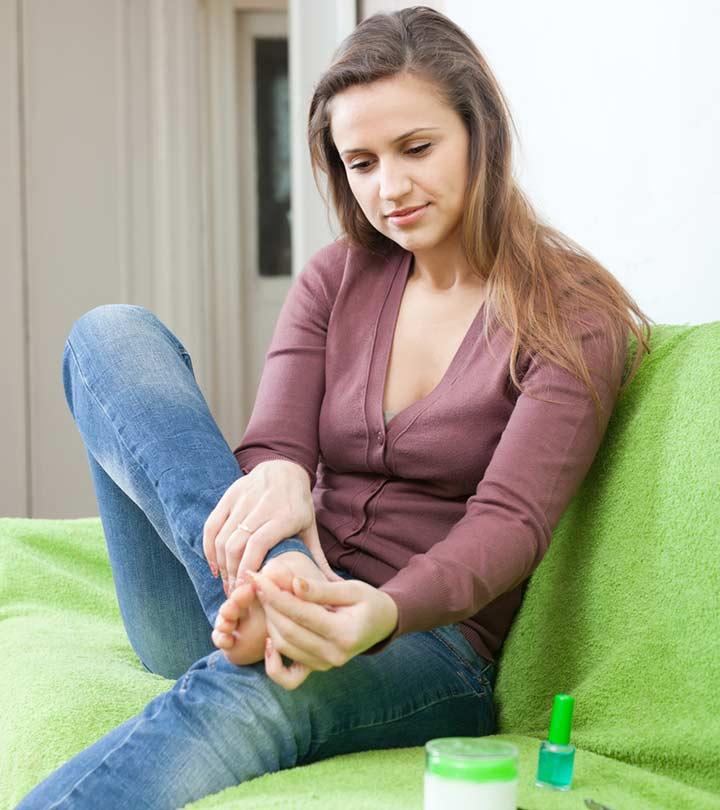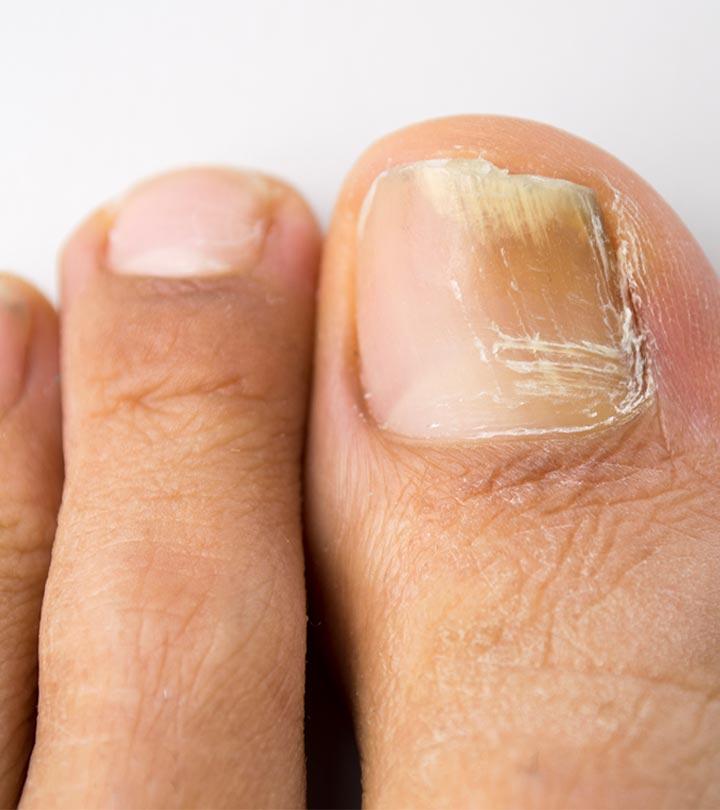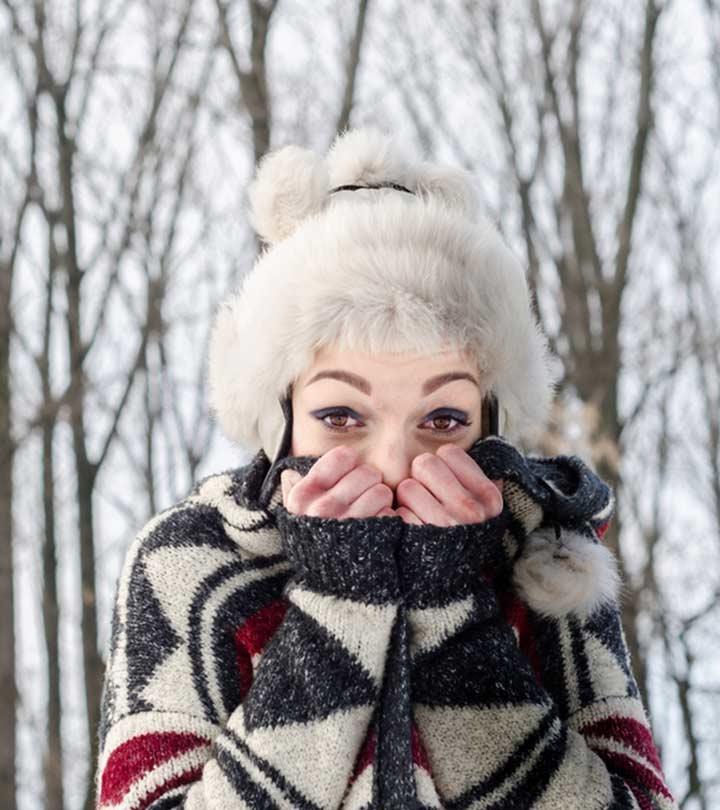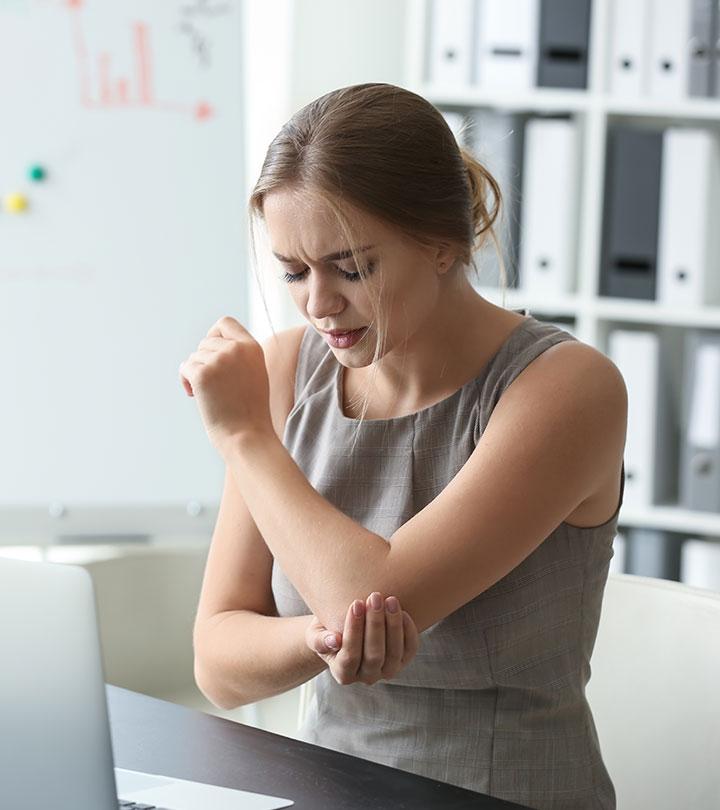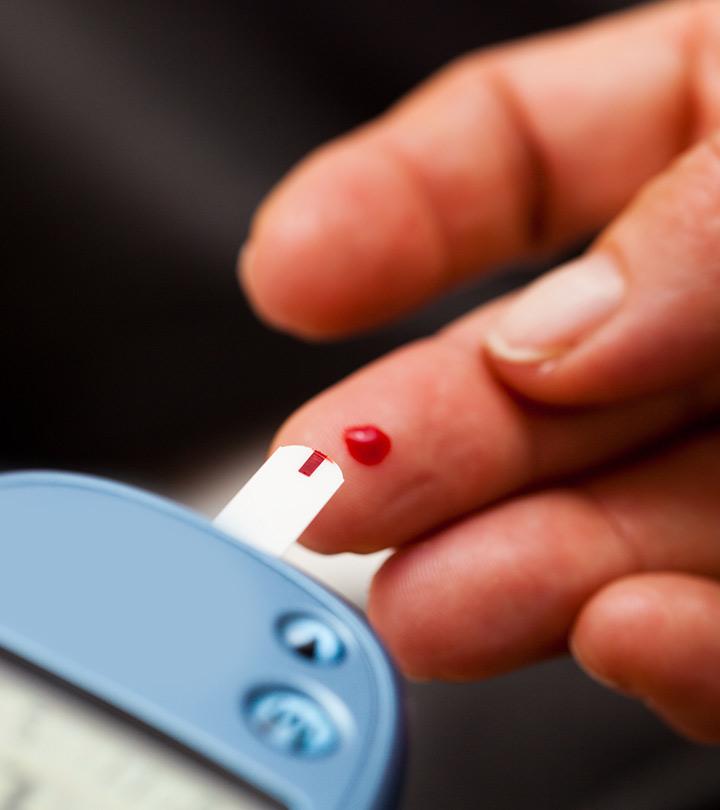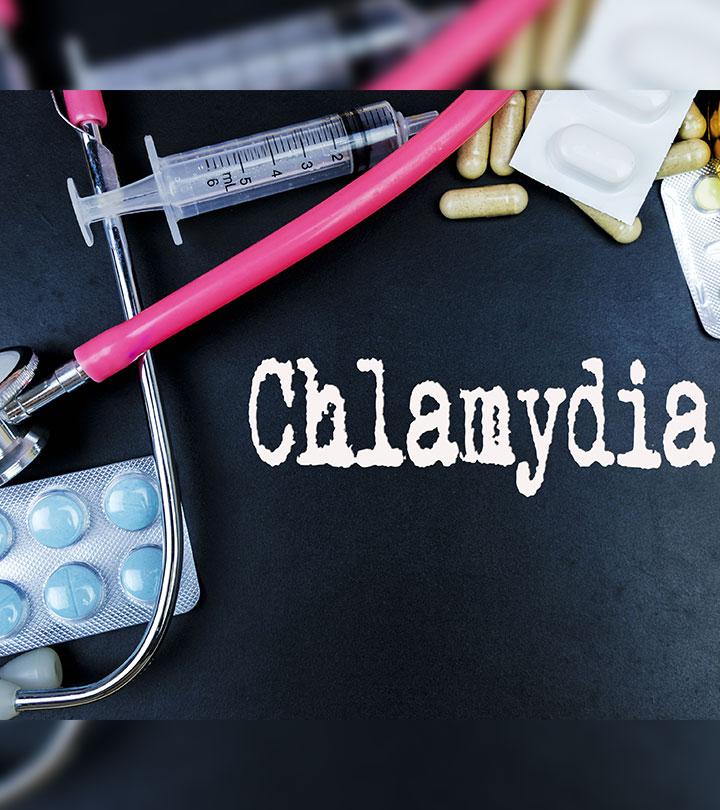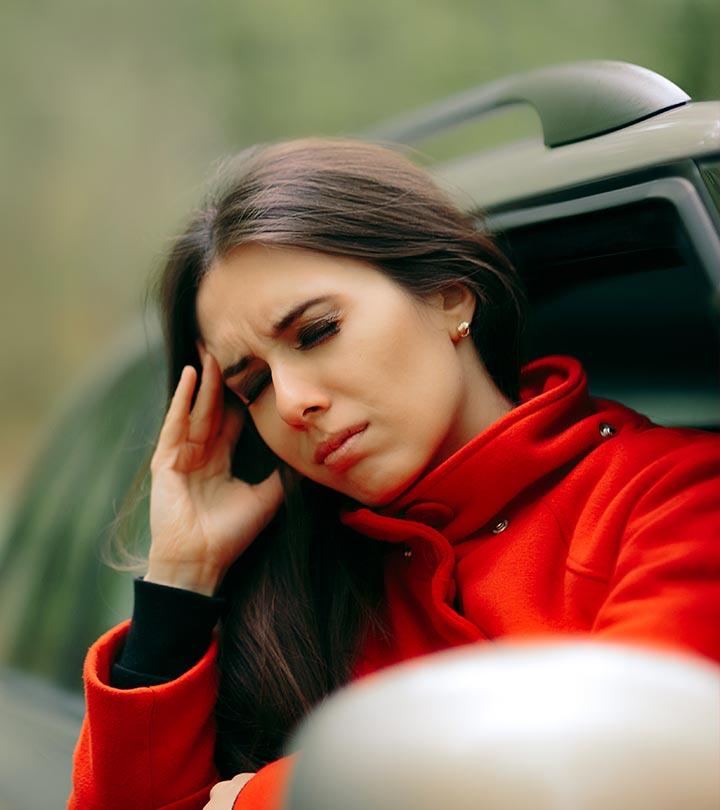7 Home Remedies For Sleep Apnea And Treatment Options
Say goodbye to interrupted sleep and enjoy a restful night with a few natural solutions.
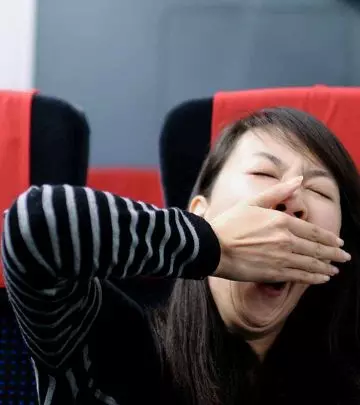
Image: iStock
Poor sleep for even one night can throw you off the next day and make you feel irritated. Imagine living with poor sleep for days on end— that’s what sleep apneai XA sleep disorder in which breathing repeatedly stops and starts during sleep. Snoring is a common symptom of it. does to people. Given how dangerous sleep apnea can be, it is still highly underdiagnosed. If you suspect that you may have sleep apnea, you are at the right place. Here, we discuss some effective home remedies for sleep apnea along with other important details.
In This Article
What Is Sleep Apnea?
Sleep apnea refers to a sleep disorder that can have serious consequences on various aspects of health. Those affected by sleep apnea experience an interruption in their breathing pattern as they sleep. In simpler words, it means that you stop breathing in your sleep for a few seconds and then resume breathing again. This continues repeatedly and leads to loud snoring and terribly unrestful sleep. Some common symptoms of sleep apnea besides loud snoring include (1) :
- Gasping for air in sleep
- Pauses in breathing during sleep
- Dry mouth on waking up
- Morning headache
- Difficulty staying asleep
- Daytime sleepiness
- Difficulty focusing when awake
- Irritability
You may have either one or both of the two primary types of sleep apnea:
- Obstructive Sleep Apnea
In obstructive sleep apnea, the throat muscles become too relaxed and collapse during sleep, causing an obstruction in the air passageway.
Godwin Etim, a blogger, wrote about how acute obstructive sleep apnea impacted him. He said, “I was diagnosed with acute obstructive sleep apnea. My quality of life was declining with every passing day, and I didn’t know why. However, I remember being plagued with a strange forgetfulness that almost cost me my job, along with other odd events that raised all kinds of red flags. Sometimes, I felt severe heart palpitations accompanied by nausea and weakness (i).”
- Central Sleep Apnea
Central sleep apnea occurs when the brain is not able to send the proper signals to the muscles that are in charge of controlling the breathing action.
If both of these conditions are present, then you may be diagnosed with complex sleep apnea syndrome. As obstructive sleep apnea is the most common, let’s explore the causes of it in detail.
Causes Of Obstructive Sleep Apnea
As the name suggests, obstructive sleep apnea results from an obstruction in the upper airway. This obstruction blocks the free passage of air, which leads to a disruption in breathing. The snoring sound is a result of the air you inhale and exhale hitting the walls of the narrowed passageway. Some factors that are associated with OSA include (1):
- Obesity
- A wide neck circumference
- A narrow throat
- A round head
- Hypothyroidism
- Acromegaly or excess bone growth due to hormonal imbalance
- Allergies
- Deviated septum
- Nasal congestion
- Smoking
- Alcohol or drug abuse
A study conducted on 4659 participants found that 0.26% of them suffered from sleep apnea and were diagnosed with the condition (2). It was further seen that out of 4487 patients, 678 (14.8-%) had hypertension, 188 (4.10%) had gastro-esophageal-reflux-disease (GERD), and 484 (10.78%) had gastritis.
The frequent interruptions in breathing may strain the heart and lead to various health risks. Learn more about it in the following section.
How Dangerous Is Sleep Apnea?
Untreated sleep apnea causes oxygen desaturation (reduced blood oxygen content) that increases the risk of high blood pressure or worsens it. This increases the risk of heart disease and stroke (3). It can also lead to disturbed sleep, which can cause daytime fatigue, resulting in increased food cravings, which may lead to type 2 diabetes and obesity. This can raise the risk of accidents if you often drive or operate machinery. Moreover, sleep apnea may aggravate depression and worsen cognitive function (4).
Ignoring sleep apnea can have far-reaching health consequences. So, it is essential to seek medical evaluation and treatment immediately.
While structural anomalies that lead to sleep apnea cannot be cured without surgery, there are certain home remedies that can improve symptoms like snoring and poor sleep significantly. Most of these home remedies for sleep apnea focus on lifestyle changes. Let’s see what they are.
Home Remedies For Sleep Apnea
1. Manage Your Weight
One of the most powerful natural remedies for sleep apnea is weight loss. Obese or overweight people are at greater risk of having their airways obstructed due to the extra fat on their throat and neck. A study shows that a modest reduction in weight among those with obesity may help with symptoms of obstructive sleep apnea and reduce the need for surgery or CPAP therapy (5). However, further studies are warranted.
2. Make Yoga A Part Of Your Lifestyle
Yoga is often recommended as one of the sleep apnea remedies as it can help you improve posture and breathing. Since there is a link between low levels of oxygen in the blood and sleep apnea, you may benefit from improving your circulation and oxygen flow through yoga (6).
3. Sleep On Your Side
Sleeping in the supine position, which means sleeping on your back, can make the symptoms of sleep apnea worse (7). Sleep on your side instead as that may help to keep your airway unobstructed and improve your sleep quality.If you are unable to sleep on your side, try positional therapy using special pillows or alarms to get used to it.
 Quick Tip
Quick Tip4. Make Use Of A Humidifier
Though more research is required, there is some evidence that a humidifier can improve symptoms of sore or dry throat, lessen congestion, and aid in breathing (8). Nasal congestion and an irritated upper airway can worsen symptoms of sleep apnea and dry air tends to aggravate these conditions.
5. Take A Chance On Aromatherapy
Essential oils such as peppermint or lavender can be helpful in fighting an inflamed or irritated upper airway, as they have anti-inflammatory properties. Studies conducted on both these essential oils show a reduction in sleep disturbances and the frequency or intensity of snoring (9), (10). You can add a few drops of these oils to your humidifier or use them through a diffuser before bedtime
 Quick Tip
Quick Tip6. Practice Throat Exercises

Certain throat exercises can help you to strengthen the muscles in your upper airway so that they don’t readily collapse while you sleep (11). The three most common tongue-strengthening exercises include:
- Curling the tongue repeatedly for a few minutes a few times a day
- Loudly saying the five vowels— a, e, i, o, and u
- Singing
7. Avoid Alcohol Before Bedtime
Alcohol intake worsens symptoms of sleep apnea. That is because alcohol is a relaxant that may relax the throat muscles that control breathing a little too much. Alcohol can also be responsible for causing inflammation in the airway and obstructing the airflow (12).
Anecdotal evidence suggests that even chiropractic care of the neck may also promote better breathing and help with sleep apnea.Depending on the severity of the disorder, you may need to use other treatment options. We look at some of them in the next section.
Sleep Apnea Treatment
- Invasive and Non-invasive Applications
Continuous Positive Airway Pressure (CPAP) and oral/dental appliances like Mandibular Advancement Devices and Tongue Retaining Devices are the most common treatment options for sleep apnea. There is, however, a wide variety of anti-snoring appliances to choose from including nasal devices, position control devices, and chin straps that may be effective for you. It is best to consult your doctor to understand your particular requirements.
Kyle Okimoto, a finance and personal development blogger, shared his experience of using a CPAP for his sleep apnea. He said, “I have a love/hate relationship with this device. It looks ridiculous. But by using it, I noticed right away I had more energy and my mind was sharper (ii).”
- Medication
There is no medication to cure sleep apnea. However, certain medications can help manage the symptoms. For instance, daytime sleepiness, which may be common among snorers and their partners, can be treated with modafinil (1). Modafinil is a central nervous system stimulant that may improve alertness and is approved as a treatment for sleep apnea-related sleepiness by the FDA. Modafinil is mostly used along with other therapeutic/treatment measures like CPAP. Thyroid medications are also recommended for those who have hypothyroidism-related sleep apnea (11).
- Surgery
Physicians treating sleep apnea and snoring usually consider surgery to be the last resort. The various types of surgeries that can act as a sleep apnea cure are all aimed at increasing the size of the upper airway. This can help to minimize the obstruction that leads to irregular breathing, snoring, and sleep disturbances. Tracheostomy is the most common and effective surgical procedure for obstructive sleep apnea.
The treatment option that can be the most helpful for you needs to be decided by a doctor after your sleep apnea has been diagnosed and the underlying causes understood. The first step, therefore, is to visit your doctor.
When To See A Doctor
Sleep apnea is linked to conditions like hypertensioni XA condition in which the blood pressure is consistently higher than it should be due to a spike in the blood glucose level. , cardiac arrest, stroke, diabetes, GAD, hypothyroidism, and arrhythmia (irregular heart rhythm). Untreated sleep apnea can greatly increase the risk of cardiovascular illnesses. It can also increase the risk of accidents on the road and depression (1), (13). So, if you feel that you are experiencing the symptoms of sleep apnea, like excessive daytime sleepiness, snoring, and insomnia, contact your physician or a sleep specialist.
The most commonly recommended course of action for those who have sleep apnea is the use of a CPAP machine. If you are seeking an alternate option that you can discuss with your doctor, read on.
What’s An Alternative To A CPAP Machine?
A lot of people find CPAP machines uncomfortable due to the accompanying side effects. Some of them include facial structural changes, nasal congestion, sores on the nasal bridge, discomfort, claustrophobia, conjunctivitis, and irritation (11). Full face masks, chin strap devices, heated humidifiers, and local treatments like moisturizers or corticosteroidsi XA medication/steroid hormone that is used to treat inflammation and rashes and suppress an overactive immune system. can make it more comfortable.
However, these are expensive equipment, which may not be preferred by all. A more widely used and accessible approach to sleep apnea management is the use of oral or dental appliances that can reposition the mandible (the bone that forms the lower jawline).
To summarize, sleep apnea is a sleep disorder that is characterized by loud snoring and pauses in breathing during sleep. It can be potentially life-threatening if left unaddressed. Lifestyle changes as part of the home remedies for sleep apnea include weight management, reduced alcohol intake, sleep position changes, and essential oils. You can also try relaxation techniques like meditation, and breathing exercises, and maintain good sleep hygiene. Alternatively, opt for medications and different treatment options after consultation with a medical professional if your sleep apnea is too severe to be managed alone.
Frequently Asked Questions
Can sleep apnea be reversed naturally?
Sleep apnea is considered to be a chronic condition. However, mild cases can be improved with lifestyle changes, changes in sleeping position, and weight loss.Traditional Chinese practices like acupuncture may also help improve sleep apnea in adults (14).
What tea is good for sleep apnea?
Green tea is good for sleep apnea as studies have shown that it may improve the cognitive function affected by sleep-apnea-induced hypoxiai XIt occurs when the body does not receive enough oxygen at the tissue level due to low blood supply. (15).
What vitamin deficiency causes sleep apnea?
There is some evidence to suggest an association between deficiency in vitamin D and the occurrence of sleep apnea. However, further studies are needed to understand the role of vitamin D in this regard (16).
What foods should I avoid with sleep apnea?
You should avoid foods that cause an inflammatory response in the body, such as fatty meats, dairy products, and refined carbohydrates.
Can a pillow help with sleep apnea?
Yes, sleeping propped up with a wedge-shaped, foam-based pillow may help improve airflow and breathing in individuals with sleep apnea.
Get rid of sleep apnea and enjoy a good night’s rest! Check out the video below to learn how to naturally prevent snoring and get peaceful sleep with these simple home remedies.
Key Takeaways
- Sleep apnea is a sleep disorder that interrupts the breathing pattern while sleeping.
- Obesity, hypothyroidism, allergies, a narrow throat, and smoking are causes of obstructive sleep apnea.
- Managing your weight, practicing yoga, and sleeping in the supine position may help the symptoms.
- Consult your doctor if you experience excessive daytime sleepiness, snoring, and insomnia.
Personal Experience: Source
StyleCraze's articles are interwoven with authentic personal narratives that provide depth and resonance to our content. Below are the sources of the personal accounts referenced in this article.
i. My Journey To A Sleep Apnea Diagnosishttps://medium.com/the-ascent/my-journey-to-a-sleep-apnea-diagnosis-fe98ad29b6bc
ii. 3 Easy to Spot Symptoms of Sleep Apnea That Can Save Your Life (and Your Marriage)
https://kyleokimoto.medium.com/3-easy-to-spot-symptoms-of-sleep-apnea-that-can-save-your-life-and-your-marriage-930c6b205bda
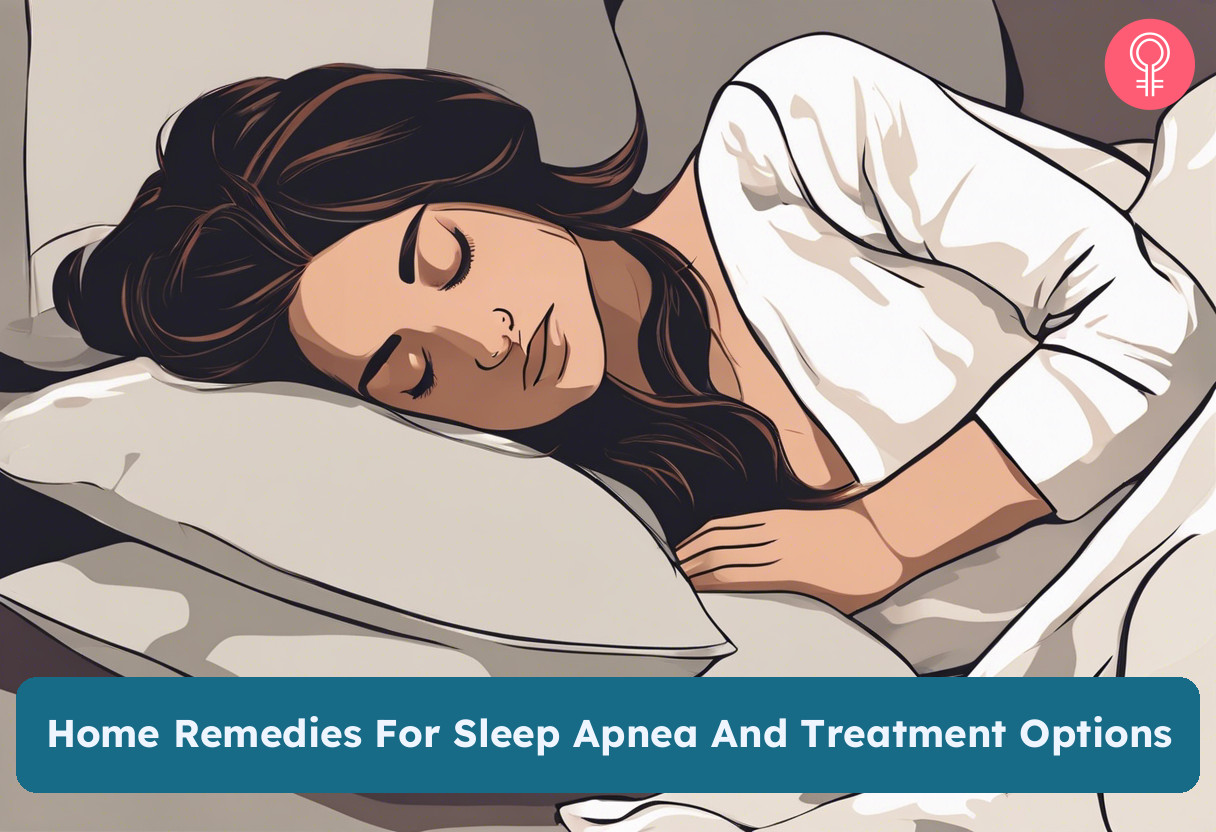
Image: Stable Diffusion/StyleCraze Design Team
References
Articles on StyleCraze are backed by verified information from peer-reviewed and academic research papers, reputed organizations, research institutions, and medical associations to ensure accuracy and relevance. Read our editorial policy to learn more.
- Obstructive sleep apnea: current perspectives
https://www.ncbi.nlm.nih.gov/labs/pmc/articles/PMC5789079/ - Prevalence of obstructive sleep apnea syndrome: a single-center retrospective study
https://www.mdpi.com/1660-4601/18/19/10277 - Obstructive sleep apnea and hypertension: updates to a critical relationship
https://www.ncbi.nlm.nih.gov/pmc/articles/PMC8897114/ - Depression Prevalence in Obstructive Sleep Apnea
https://www.heraldopenaccess.us/article_pdf/60/depression-prevalence-in-obstructive-sleep-apnea.pdf - Weight loss for obstructive sleep apnea: the optimal therapy for obese patients
https://pubmed.ncbi.nlm.nih.gov/7963174/ - Application of Standardised Yoga Protocols as the Basis of Physiotherapy Recommendation in Treatment of Sleep Apneas: Moving Beyond Pranayamas
https://www.ncbi.nlm.nih.gov/labs/pmc/articles/PMC6848556/ - Supine position related obstructive sleep apnea in adults: pathogenesis and treatment
https://pubmed.ncbi.nlm.nih.gov/23669094/ - Effect of Heated Humidification on CPAP Therapy Adherence in Subjects With Obstructive Sleep Apnea With Nasopharyngeal Symptoms
https://www.researchgate.net/publication/303511030_Effect_of_Heated_Humidification_on_CPAP_Therapy_Adherence_in_Subjects_With_Obstructive_Sleep_Apnea_With_Nasopharyngeal_Symptoms - Effect of Peppermint Oil among Sleep Apnea Individuals
https://journaljpri.com/index.php/JPRI/article/view/1710 - 0498 Effect of Lavender Essential Oil on Sleep in Postmenopausal Women with Insomnia: Double-Blind Randomized Controlled Trial
https://academic.oup.com/sleep/article/43/Supplement_1/A190/5847168 - Snoring and Its-management (Part 1/2): A Review
https://www.researchgate.net/publication/324896434_Snoring_and_Its-management_Part_12_A_Review - Alcohol and the risk of sleep apnoea: a systematic review and meta-analysis
https://www.ncbi.nlm.nih.gov/labs/pmc/articles/PMC5840512/ - Excessive Daytime Sleepiness in Acute Ischemic Stroke: Association With Restless Legs Syndrome Diabetes Mellitus Obesity and Sleep-Disordered Breathing
https://pubmed.ncbi.nlm.nih.gov/29117882/ - Acupuncture for Obstructive Sleep Apnea (OSA) in Adults: A Systematic Review and Meta-Analysis
https://www.ncbi.nlm.nih.gov/pmc/articles/PMC7079261/ - Green tea catechin polyphenols attenuate behavioral and oxidative responses to intermittent hypoxia
https://cris.bgu.ac.il/en/publications/green-tea-catechin-polyphenols-attenuate-behavioral-and-oxidative - Serum Vitamin D Is Significantly Inversely Associated with Disease Severity in Caucasian Adults with Obstructive Sleep Apnea Syndrome
https://pubmed.ncbi.nlm.nih.gov/26414899/





